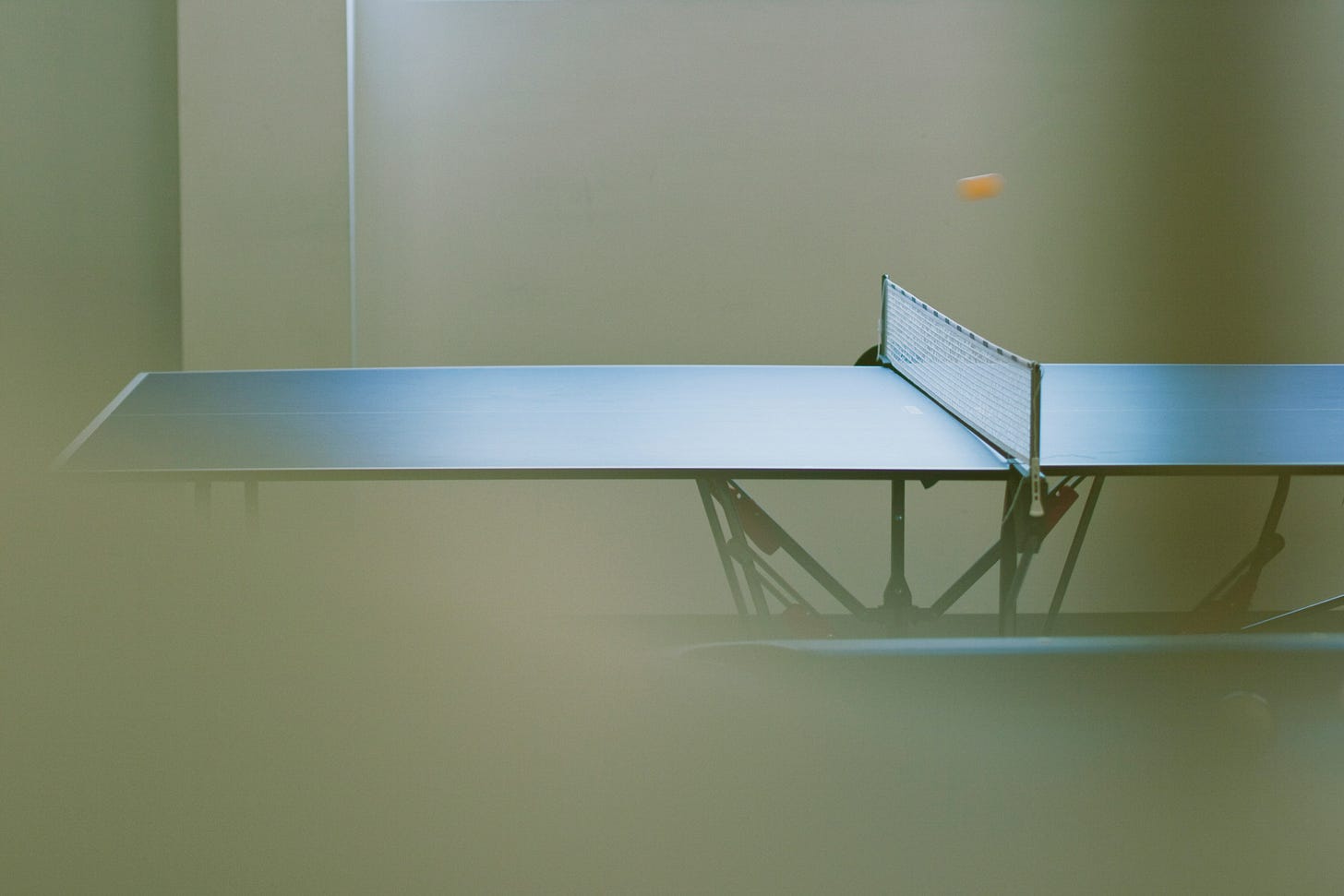Paddlehands Pt. II
I thought ping-pong was just a game. That all changed when I joined the Bayonne High-School Ping-Pong Club.

Buy the e-book of the full Paddlehands saga for $5 or listen to the audiobook on Spotify, Apple, or YouTube. If you’d like a PDF or other version, write me.
Before I go forward, I must take you back in time. You must understand who Eddy Fink was and what he did to me in the ice rink gymnasium at Bayonne High School all those years ago. Because without that knowledge, what comes next seems like the pathetic plotting of a pitiable fool. And I may be many things, but a fool I am not.
Keep reading with a 7-day free trial
Subscribe to Storytime with Big Head to keep reading this post and get 7 days of free access to the full post archives.


